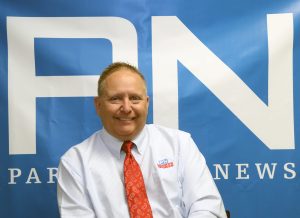A concept that would get veterans out of extended care facilities
At this time each year, Paralyzed Veterans of America’s (PVA) chapter representatives make their annual pilgrimage to Washington, D.C., for a weeklong Advocacy/Legislation Seminar.
This annual event traditionally consists of three major activities. The week begins with important training, as chapter attendees receive updates to not only changes in laws and regulations, but on pending or proposed legislation that may affect our interests as an organization.
Up next — one of my favorite parts of the week — is the delivery of testimony by the PVA national president before a joint session of the House and Senate Committees on Veterans’ Affairs. Last, but far from least, chapter representatives meet with their members of Congress to speak with them about PVA’s legislative priorities.
As you can imagine, during the continuing novel coronavirus (COVID-19) pandemic, this event has become significantly altered and more or less relegated to the virtual world. I, for one, have complete confidence in our government relations staff in Washington, D.C., and am certain they have organized an event, even a virtual one, that will give PVA the biggest impact possible under the circumstances.
PVA’s history in advocacy actually predates our incorporation as an organization. Representatives from the original groups formed in the hospitals during and following World War II began advocating on both the local and national level for the changes needed to allow them to live productive and meaningful lives.
I’d like to share a story from 1946 about one of these basic needs and two vastly different theories on how best to satisfy it. This fundamental need was to get out of the institutional hospital environment and live a life close to what veterans had before their spinal-cord injuries.
Remember, this was 1946, and the basic accessibility we enjoy today simply didn’t exist. Not only did veterans face physical barriers, but they dealt with attitudes that were just as challenging.
The thought of fighting to change the world to create universal accessibility had to be overwhelming. Understanding that should help explain why another option actually got some traction.
I’m sure most of us have encountered an individual who, just because we use a wheelchair for mobility, thinks our mental ability isn’t up to par either. This attitude was more common than not in 1946, and the thought by many was that we simply needed to be shelved away and cared for in our seemingly pathetic state.
Why did we need to argue for accessibility in the community when we were going to be living out our days in some institution?
So, what was that other option? Enter Ross T. McIntire, a Navy vice admiral and surgeon general, and famous American composer Harry Revel. They proposed a concept that would get veterans out of an extended care facility and into an entire city that would allow people with disabilities to live more independently.
It was called Vetville. And the concept probably seemed like a huge improvement when faced with the total lack of accessibility in 1946 America. Revel was chosen as the president of Vetville, and the articles of incorporation were filed with the California Secretary of State Sept. 20, 1946. It appeared what Revel referred to as “a community for permanently disabled veterans” was on the path to becoming a reality.
I’m happy to say that less than five months later, PVA was officially formed and one of its first legislative priorities was accessible housing. This first step to regain independence came to fruition in June 1948, when legislation authorizing assistance to certain veterans in acquiring specially adapted housing became Public Law 702 with the signature of then-U.S. President Harry Truman.
This legislation, which wouldn’t have passed without PVA’s efforts, opened the door for these veterans with disabilities to build homes that met their needs in any city they desired. That laid the groundwork to advocate for further accessibility in communities across America, not just in a place called Vetville.
I wish the PVA representatives well this year as they advocate for change and for the protection of the specialized services that enhance our ability to participate in society.



